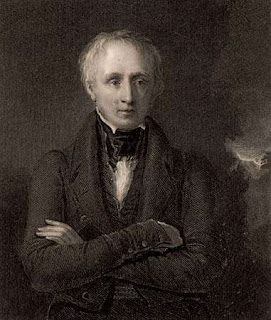WEST BENGAL SCHOOL SERVICE COMMISSION
THE COMMISSION:
The West Bengal School Service Commission Act, 1997 (West Bengal Act IV 1997) enacted by Notification No. 936-L dated 1.4.1997 came into force with effect from 01.11.1997 for the purpose of recruitment of Assistant Teacher and Headmaster/ Headmistress in recognized Non-Government aided Schools in West Bengal and presently the recruitment processes are guided by the West Bengal School Service Commission (Selection of Persons for Appointment to the Post of Teacher) Rules, 2007.
The State Government later on decided that the Non-Teaching Staff in the posts of Librarian, Clerk and Group-D Staff including Laboratory Attendant, Peon, Night Guard, Matron in recognized Non-Government aided Schools in West Bengal should also be recruited through School Service Commission, and accordingly necessary amendments have been introduced in the said Act, vide the West Bengal School Service Commission (Amendment) Act, 2008 (West Ben. Act IV of 2008) and such selection process be guided by the West Bengal School Service Commission (Selection of Persons for Appointment to the Post of Non-Teaching Staff) Rules, 2009.
- New Pattern:
IMPORTANT ANNOUNCEMENT : There might be some changes are going to happen regarding pattern of examination and eligibility criteria from upcoming season. Like introduction of different TET system of 180 marks for class 9/10 and 11/12 . The announcement yet not passed officially. You will only get detailed information after Official Confirmation.
Here is the new announcement -
ELIGIBILITY CRITERIA:
Educational qualification:
Essential:
(a) Graduate /Post Graduate from recognized University with at least 50% marks in either Graduation or Post Graduation (or its equivalent) and Bachelor of Education (B.Ed.) from National Council for Teacher Education recognized institution;
Or.
(b) Graduate /Post Graduate from recognized University with at least 45% marks in either Graduation or Post Graduation (or its equivalent) and Bachelor of Education (B.Ed.) from National Council for Teacher Education recognized institution, [in accordance with National Council for Teacher Education (form of Application for recognition, the time limit of
submission of application, determination of norms and standards for recognition of teacher education programmes and permission to start new course or training) Regulations, 2002 notified on 13/11/2002 and National Council for Teacher Education (Recognition norms and Procedures) Regulations 2007 notified on 10/12/2007];
Or.
(c) 4 years degree of B.A.Ed /B.Sc.Ed. from any National Council for Teacher Education recognized institution.
Note.—The minimum qualification as prescribed by the NCTE on the date of publication of advertisement shall also be considered.
Age Limit :
Minimum 20 years and maximum 40 years.
Upper age limit is, however, relaxable by 5 years for Scheduled Caste/Scheduled Tribe candidates, 3 years for Backward Class candidates and 8 years for the Physically Handicapped Candidates and upto 55 years of age for in case of service teacher.
PATTERN OF EXAMINATION:
- Exam Pattern: Total 100 Marks.
1.Written Exam
2.Educational Qualification and Interview
- Exam Pattern Details:
2.Interview and educational qualification is about 45 marks. 10 marks for the Interview. And 35 marks for the Educational qualification.
Here we are going to discuss about....
SLST ENGLISH HONOURS/ GRADUATE level For class IX-X.
SYLLABUS:
Poetry:
WilliamWordswort: Lucy Poems, The world is too much with us.
P.B. Shelley: Ode to the West Wind, To a Skylark
John Keats: Ode to a Nightangle, The Autumn
Alfred Tennyson: Ulysses
Robert Browning: The last Ride Together
Thomas Hardy: The Darkling Thrush
W.B Yeats: The Wild Swans at Coole.
Wilfred Owen: Strange Meeting
Walter De La Mare: The Listeners
Drama:
Goldsmith: She Stoops to Conquer
G.B. Shaw: Arms and the Man
John Galsworthy: Justice
Short Story:
Joseph Conrad: Lagoon
Somerset Maugham: The Lotus Eater
O. Henry: The Gift of the Magie
H.E. Bates: The OX
Essay:
Charles Lamb: Dream children- a Reverie
L.A. Hill: Principles of Good Writing
GRAMMAR and USAGE
- Common Errors
Agreement of Verbs, Use of Articles and Prepositions,
- SentenceForms
Joining and Splitting of Sentences Narration Direct Speech and Indirect Speech
- Composition
Click here to go to the next page :
Visit - wbssccounsel.blogspot.com
For Guidance - click here
For contact mail - click here
For Exam Pattern - click here
For Syllabus - click here
For SSC New Rules - click here
For official website - click here
For official notice in pdf - click here
***All aspirants are requested to follow official website of West Bengal School Service Commission for further details about schemes and syllabus.
Here is the official website -
www.westbengalssc.com/
















